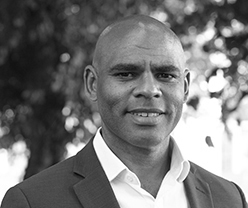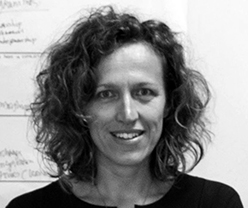21 January - Session 1: Building Back Better & Introduction to the Series
Summary
The introductory session considers the recovery from Covid-19 in the context of building back better and demonstrates the continuing importance of the SDGs as a framework for delivering sustainable urbanisation. It features introductory remarks from the UKBEAG, the FCDO and UN-Habitat together with contributions from Sir Paul Collier CBE, Director of the International Growth Centre, and Mayor Marvin Rees from Bristol City Council.
Key Takeaways
- Importance of empowering cities to achieve national objectives. Local government is not just a collection of services but a development agency. Build an enabling environment. Build trust and don’t over promise.
- Historically, people paid to run processes, not deliver outcomes.
- Agency & motivation more important than training. Bristol 2050 plan was co- created and extends beyond the electoral cycle.
- Building a revenue base is vital but long-term planning also needs long term finance.
Principal Contributors
Prof Sir Paul Collier CBE, Director, International Growth Centre
Professor Sir Paul Collier is a Director of the IGC and Professor of Economics and Public Policy at the Blavatnik School of Government and a Professorial Fellow of St Antony’s College. From 1998–2003 he took a five-year Public Service leave during which he was Director of the Research Development Department of the World Bank. Collier is currently a Professeur invité at Sciences Po and a Director of the International Growth Centre. His research covers the causes and consequences of civil war, the problems of democracy in low-income and natural resources rich societies and how to create liveable and productive cities in rapidly urbanising developing countries. From 2017-2018, Collier was the academic co-director of the LSE-Oxford Commission on State Fragility, Growth and Development.

Mr Marvin Rees, Mayor, Bristol City Council
Marvin Rees was elected Mayor in May 2016 and Bristol became first major European city to have an elected mayor of Black African heritage. His working life began at Tearfund, before working with Sojourners in Washington, DC and President Clinton’s advisor, Dr Tony Campolo. On returning to the UK, he was a broadcast journalist at BBC Bristol, worked at the Black Development Agency supporting the BME-led voluntary sector and worked on delivering race equality in mental health with NHS Bristol’s Public Health team. He holds two Master’s Degrees in Political Theory and Government and in Global Economic Development. He is a Yale World Fellow and co-founded the City Leadership Programme. He entered the political world having graduated from Operation Black Vote and Labour Future Candidate programmes. During his first term in office, he has delivered almost 7,000 homes, announced the development of a mass transit system, provided quality work experience for over 3,500 children, developed the One City Plan, successfully bid to bring Channel 4 to Bristol and is leading the city’s response to both the climate and ecological emergencies.

Ms Elizabeth Milsom, Programme Manager, Foreign, Commonwealth & Development Office
Elizabeth Milsom is the Lead for the Global Future Cities Prosperity Fund Programme, run by the UK Foreign, Commonwealth and Development Office. Her career has centred on programme and project management within central government spanning the sectors of sustainable development, energy innovation, energy policy, energy efficiency, and environmental awareness. She has a masters and doctorate in physical chemistry from the University of Bath, UK.

Ms Naomi Hoogervorst, Senior Urban Planner, UN Habitat
Naomi Hoogervorst is a senior urban planner at UN-Habitat’s Urban Lab falling under the Planning, Finance and Economy Section (PFE Section). She is managing the Prosperity Fund Global Future Cities Programme and is the PFE Section's focal point on Social Inclusion and Human Rights. She holds a master's degree in architecture, Urbanism and Building sciences from the Technical University of Delft (NL). She has over 14 years of professional experience from UN-Habitat, the private sector, and Non-Governmental Organisations in managing programmes/projects and as a technical expert within architecture and, sustainable and inclusive urban development on neighbourhood, city, and national level.

Mr Peter Oborn, Strategic Adviser UK Built Environment Advisory Group
Peter Oborn is a chartered architect and strategic client adviser with considerable experience of working internationally and served as the inaugural Chair of the UK Built Environment Advisory Group which was launched at Habitat III. He recently acted as architect adviser to the Government of Oman in connection with a planned city extension at Madinat Al Irfan which is intended to provide a catalyst for change in the Sultanate. More recently, Peter served as architectural adviser in connection with Green City Kigali. Led by Rwanda's Green Fund (Fonerwa) and supported by KfW Development Bank, Green City Kigali seeks to develop a model community on a 600ha site situated in the capital city to provide housing that is affordable for all and to serve as a showcase for sustainable urban development, establishing new standards that can be replicated elsewhere in Rwanda and beyond while also setting a clear trajectory towards a Net Zero future.
Links to further information
- International Growth Centre: Policies for prosperity in middle income cities: Planning, transportation and resilience
- Bristol City Council: One City Plan
- Bristol City Council: One City Goals Dashboard
- Bristol City Council: Bristol and the SDGs, A Voluntary Local Review of Progress, 2019
- Bristol City Council: Voluntary Local Reviews, A Handbook for UK Cities